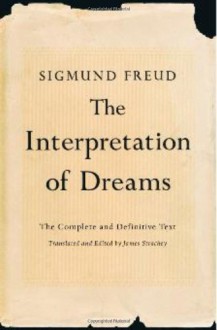The Interpretation of Dreams: The Complete and Definitive Text
What are the most common dreams and why do we have them? What does a dream about death mean? What do dreams of swimming, failing, or flying symbolize?First published by Sigmund Freud in 1899, The Interpretation of Dreams considers why we dream and what it means in the larger picture of our...
show more
What are the most common dreams and why do we have them? What does a dream about death mean? What do dreams of swimming, failing, or flying symbolize?First published by Sigmund Freud in 1899, The Interpretation of Dreams considers why we dream and what it means in the larger picture of our psychological lives. Delving into theories of manifest and latent dream content, the special language of dreams, dreams as wish fulfillments, the significance of childhood experiences, and much more, Freud, widely considered the father of psychoanalysis,” thoroughly and thoughtfully examines dream psychology. Encompassing dozens of case histories and detailed analyses of actual dreams, this landmark text presents Freud’s legendary work as a tool for comprehending our sleeping experiences.Renowned for translating Freud’s German writings into English, James Stracheywith the assistance of Anna Freudfirst published this edition in 1953. Incorporating all textual alterations made by Freud over a period of thirty years, it remains the most complete translation of the work in print.Completely redesigned and available for the first time in trade paperback
show less
Format: paperback
ISBN:
9780465019779 (0465019773)
ASIN: 465019773
Publish date: February 23rd 2010
Publisher: Basic Books
Pages no: 688
Edition language: English
Category:
Classics,
Non Fiction,
Academic,
Reference,
European Literature,
Science,
Philosophy,
College,
Psychology,
German Literature,
Theory

Interesting and informative, but long winded at times.

Skip the opening chapter on dream research and enjoy one of the most important and amazing books ever. This book messed me up. After I read it I realized how much being awake was like dreaming, and that in a sense I was walking around in a dream constructed by my unconscious.

Though Freud rejected nearly every premise in the long theoretical portion at the end -- during his long life -- this (including the concluding passage) is a work of genius, and fundamental to understanding Freud.

